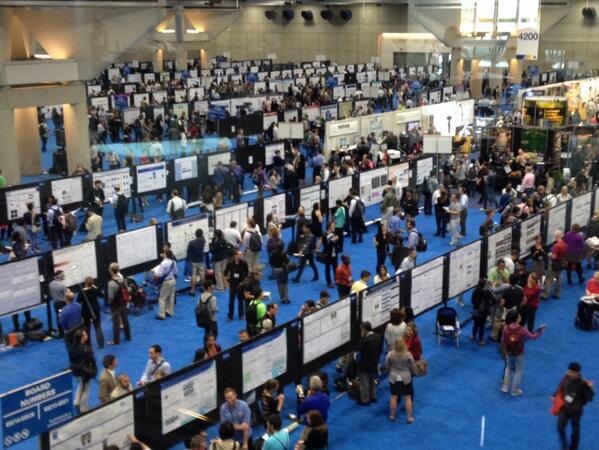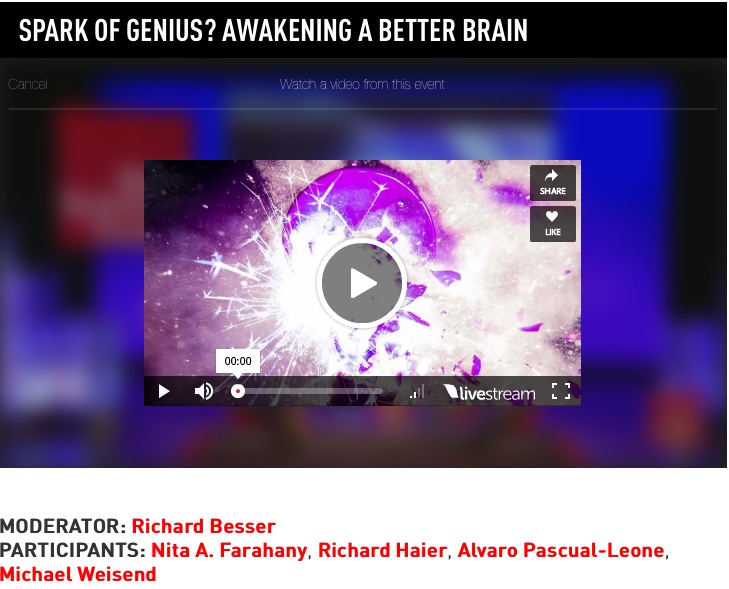Update: Aldis wrote in a comment:
To clarify the takeaway message: we weren’t actually training fluid intelligence. Fluid intelligence has been shown to rely on fundamental cognitive abilities like working memory and attention, and the games were designed to train those underlying abilities. Training on fluid intelligence tasks would be like teaching to the test.
In a talk, “Can HD-tDCS Enhance Cognitive Training”, Aldis Sipolins describes a ‘wildly ambitious’ cognitive training study called the INSIGHT Project. Funded by IARPA, the study combined rigorous exercise and HD-tDCS-enhanced cognitive training in an attempt to increase ‘fluid intelligence’. 518 subjects, half of whom underwent pre and post fMRI scanning, undertook a 16 week course of combined exercise and brain training. The results? Anodal HD-tDCS improved performance on 3 of 6 brain-training video games but had no effect on transfer, i.e. the improvements did not transfer to general intelligence. As a result tDCS will not be a part of the study moving forward.
- Partnered with Aptima to create a suite of six brain-training games. Games were ‘adaptive’, i.e they increased in difficulty as the subject’s performance improved.
- Montage used was 2 x 2 (4 electrodes) designed by Soterix to affect DLPFC (dorsalateral prefrontal cortex). Dosage was 2mA for 30 minutes. Training started once current ramped up.
- BOMAT (bochumer matrices) test was used to determine whether enhanced game performance transferred to fluid intelligence.
- A future study on the INSIGHT Project will include a Mindfulness meditation segment and include nutritional supplements (brain shake).
In a recent Reddit thread when asked what he’d do differently, Aldis Sipolins said:
1) Include a cathodal group, with the hope that it impairs performance. Vince Clark suggested that impairing performance during cognitive training may have led to greater transfer. Kind of like how strapping weights to your body when you train makes it easier to move once you take them off.
2) Include a tDCS group that doesn’t complete the exercise intervention. It’s possible that exercise masked the effects of tDCS.
I would personally like to thank Aldis Sipolins, Art Kramer, and everyone at the Lifelong Brain and Cognition lab for some excellent science!








